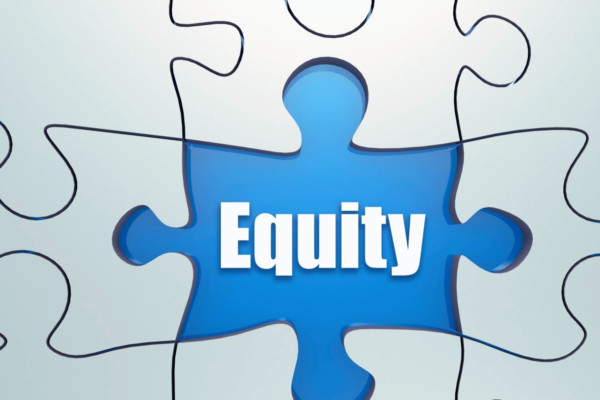
Underwater Mortgages: Everything You Need to Know

Home values in Austin reached a towering peak in 2022, but the housing market has since cooled down significantly. As a result, home prices in the Austin area—and across the country—have also fallen. If house prices continue to fall and you bought your house at the height of the market, it’s possible that you may soon have what is known as an underwater mortgage.
If you were an adult during the Housing Crisis of 2008, the phrase “underwater mortgage” can be a little scary, but it doesn’t have to be. Here, we’ll explain what exactly that term means and what being underwater might mean for your specific financial situation.
From Mortgages to Home Equity Loans
Our local, award-winning lending team is ready to help you begin today.
What is an Underwater Mortgage?
An underwater mortgage, also known as an upside-down mortgage, occurs when the loan you took out to purchase a home is worth more than what you could earn if you were to sell the house on the free market. In other words, you owe more on your home than it’s currently worth.
How Does an Underwater Mortgage Happen?
There are two primary ways in which your mortgage can go underwater:
- Property Values Decrease. Say you owe $350,000 on your home mortgage, but your home is currently only valued at $300,000. In this instance, you would have an underwater mortgage.
- Missed Mortgage Payments. If you miss your mortgage payments, you may also end up owing more on the home than it’s worth. When you start making payments on your loan, the majority of the payment will go toward interest with a small portion applying to the principal. If you don’t pay off the interest one month, that interest begins to accumulate and compound. Eventually, this could make it difficult for you to pay back the loan.
What an Underwater Mortgage Isn’t
An underwater mortgage does not refer to any and all houses that have lost value. For example, if your house is worth $300,000, and your original mortgage loan was $350,000—but you only owe $200,000—you still have positive equity and you are not underwater.
If you owe less on the loan than your house is worth, you are not underwater on your mortgage.
When Does It Matter?
While everyone would prefer that their home appreciate in value over the course of owning a home, if you find yourself in a situation where your home has depreciated in value, it’s not necessarily terrible news. An underwater mortgage will only have a marked impact on your financial situation in a few circumstances:
- You plan on selling your home soon. If you decide to sell your home when you owe $350,000 on your mortgage, but the home is only worth $300,000, an underwater mortgage could have a significant impact on your family’s finances. In this case, because you have negative equity, you would have to pay the $50,000 difference in the mortgage loan, plus the real estate agent commission and closing costs, out of your own pocket. Rather than making a profit off your real estate investment, you would take a loss.
- You want to refinance your mortgage. The value of the equity in your home will also matter if you want to refinance your mortgage. If the interest rates on home loans decrease after your home purchase, it might be advantageous to try to refinance your mortgage at a lower rate in order to lower your monthly mortgage payments. However, if you owe more on your current mortgage than the home is actually worth, most lenders will not refinance a loan.
- You want to take out a home loan. Another case where an underwater mortgage matters: you want to take out a home equity loan or a home equity line of credit (HELOC). These types of loans are usually used to finance home improvements, but can also be used for other purposes, such as debt consolidation or to pay for college. However, in Texas, you can only borrow 80 percent of the home’s market value, minus any unpaid mortgages. If you have negative equity due to an underwater mortgage, this type of loan is no longer an option.
If you can’t afford your mortgage. If you’re underwater and can’t make monthly payments, it’s important to talk to your lender immediately.
When Doesn’t It Matter?
As you can see, an underwater mortgage can have an impact on your ability to unlock equity in your home, but if you don’t plan to sell your home anytime soon and have no plans to refinance your mortgage, an underwater mortgage should have little to no impact on your day-to-day life.
- You plan to live in your home for the long term. If you plan to live in your home for many years and can still afford your monthly payment, any negative equity you experience from a falling housing market is likely only temporary. As long as you continue to make your monthly mortgage payments, nothing will change just because you’re underwater. As you pay down the balance on the mortgage principal over time, and as the market changes, you will most likely gain back any value you lost. And if you’re living in your home for a decade or longer, the fact that you had an underwater mortgage at one point might not matter at all.
What Are Your Options If You Have an Underwater Mortgage?
If you find yourself with an underwater mortgage and absolutely need to sell or refinance, the good news is there are some avenues available to help you out of a difficult situation. It’s critical to talk to your lender (or a new lender) as soon as possible, to prevent further financial complications.
Short Sale
A short sale should only be considered if you’re no longer able to make your monthly mortgage payments. In a short sale, you can sell your home for less than you owe on the mortgage and the mortgage lender gets the total proceeds from the sale. The lender can then either forgive the difference or get a deficiency judgment.
Relief Refinance Program
The Freddie Mac Enhanced Relief RefinanceSM helps borrowers who have little to no home equity—as in the case of an underwater mortgage—refinance their mortgages at a more affordable rate. With this program, borrowers can benefit from a lower monthly principal and interest payment, a lower interest rate, and a move from a variable interest rate loan to a fixed interest rate. To qualify:
- Your mortgage must be through Freddie Mac.
- The Note Date of the loan you want to refinance must be on or after October 1, 2017.
- You have to be current with your loan payments. In other words, you cannot have missed any mortgage payments in the last 12 months.
- You may not have used the program to refinance your loan in the past.
This program is a great example of why talking to your lender as soon as possible is the best first step. You don’t want to wait until you miss a payment.
High Loan-To-Value Refinance
Similar to Freddie Mac’s Enhanced Relief RefinanceSM, Fannie Mae also offers a similar refinance option known as the High LTV Refinance Option. The program also allows borrowers to change the terms of their loan if they owe more than their home is worth. To qualify, you must meet the following criteria:
- Your mortgage must be through Fannie Mae.
- The Note Date of the loan you want to refinance must be on or after October 1, 2017.
- You cannot have used an enhanced relief program to refinance your loan in the past.
- You have to be current on your loan payments.
Take a Deep Breath
It’s never fun to learn that you owe more on your home than it’s worth, but the long-term implications really depend on your personal financial situation. There is help available if you need it! When you’re worried about becoming underwater on your mortgage, reaching out to your lender is always the best first step.




